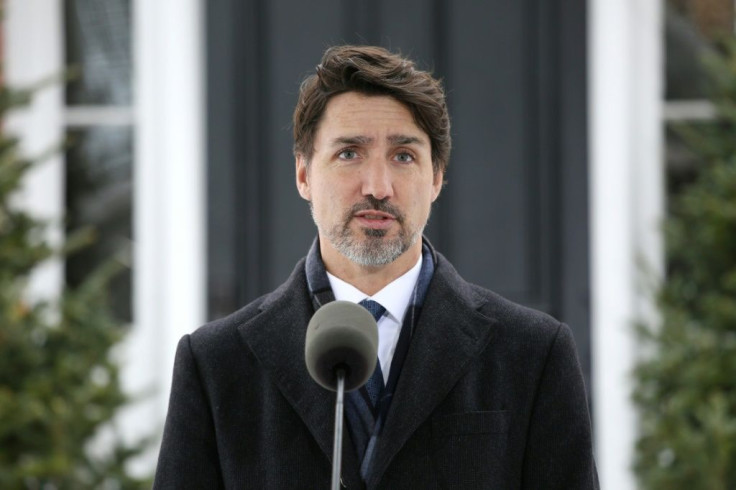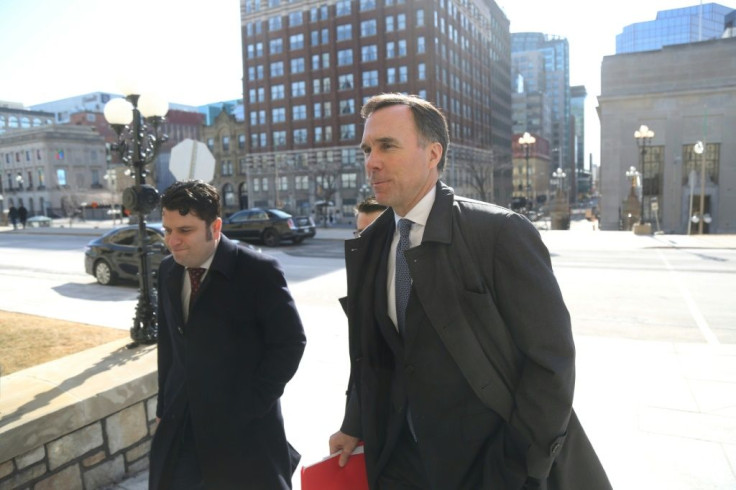Canada Announces Can$82 Bln Coronavirus Aid Package

Canadian Prime Minister Justin Trudeau announced Can$27 billion in direct aid Wednesday to help workers and businesses cope with the economic impact of the coronavirus pandemic.
He said tax payments worth an estimated Can$55 billion could also be deferred until August. The combined amount equals three percent of this G7 nation's gross domestic product (GDP).
"This is a time where you should be focused on your health, not whether you're going to lose your job or not whether you're going to run out of money for things like groceries and medication," Trudeau told a news conference outside his residence where he and his family are self-isolating after his wife Sophie was diagnosed with the COVID-19 virus.
The funds will be disbursed through social programs such as employment insurance and a child tax benefit, including a Can$900 bi-weekly income support for workers who must stay home and do not have access to paid sick leave.
Wednesday's announcement builds on billions in funding already released to bolster Canada's public health response, prop up Canada's banking system and to help stabilize the economy.
"Our government is prepared to do whatever it takes to keep our economy strong and stable," Finance Minister Bill Morneau said.
"Usually my job is to ensure that we maintain our fiscal track," he said.
"But right now, as minister of finance, my only job is to make sure that Canadians can keep food in the fridge, that they can keep a roof over their heads, that they can afford the medicine that they need."

The injection into the economy also includes help for homeless and emergency shelters and a wage subsidy to encourage employers to keep staff in their positions, as well as banks' deferrals of mortage and other loan payments.
"We need businesses to keep going so they can keep employees working," Morneau said.
"We also know that people are worried about struggling to pay the bills if they lose their jobs or see their hours reduced," he said. "We want you to know that we have your back."
Both Trudeau and Morneau, as well as central bank governor Stephen Poloz, said the Canadian economy was well positioned to weather the pandemic, citing record low unemployment and inflation close to the bank's target of 2.0 percent.
"The fundamentals of the Canadian economy are strong and in a number of weeks or months or however long it takes, once we get rolling again the capacity of the federal government to invest in the economy to support businesses and individuals will ensure that we bounce back strongly," said Trudeau.
"Canada's balance sheet is the envy of the world and it means we have the fiscal fire power to respond," echoed Morneau. "We're now prepared to use it."
But he added, "We can't know the full impact or duration of the challenge that we're facing," and more measures could follow.
"I think we can look forward to a robust recovery when the troubles are behind us," said Poloz.
As of 1330 GMT Wednesday, Health Canada has confirmed 569 COVID-19 virus cases across the country, including eight deaths.
© Copyright AFP 2024. All rights reserved.





















